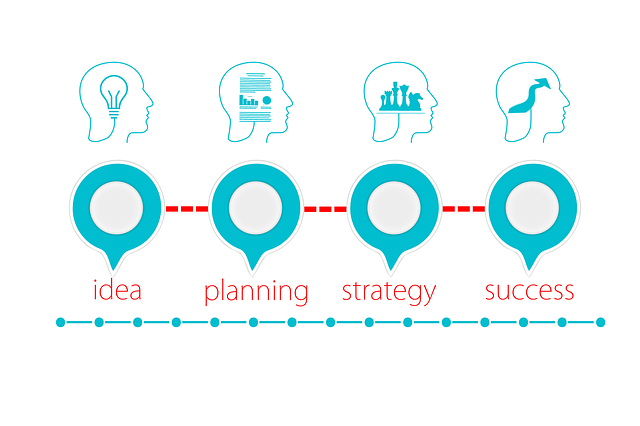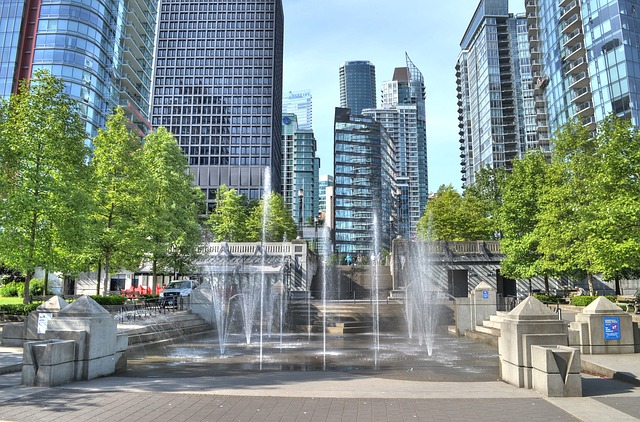Event Planning for Local Businesses (EPLB) plays a pivotal role in creating impactful and authentic corporate events that resonate with both the company's ethos and the local culture. By incorporating regional culture, cuisine, and aesthetics into event planning, local businesses can foster a strong community connection and differentiate themselves from generic alternatives. EPLB emphasizes engaging with local vendors, artists, and cultural entities to ensure genuine representation, enhancing the event's cultural resonance while contributing to the local economy. Thematic event planning deepens engagement and message retention, transforming ordinary events into extraordinary experiences that leave a lasting impression on participants. Careful venue selection, catering choices reflecting brand identity, and the integration of advanced technology are all essential components for EPLB. Utilizing local tech services for customized solutions and guest management systems further refines the planning process, amplifying the impact of the event. Post-event analysis is crucial for EPLB, offering insights into event effectiveness and allowing for continuous improvement in marketing initiatives, logistical management, and overall strategy, thus ensuring each event surpasses the last in efficiency and effectiveness. EPLB underscores the importance of integrating local flair to create memorable, unique gatherings that align with business objectives and enhance brand presence.
Embarking on the journey of crafting an unforgettable corporate event requires a blend of creativity, strategic planning, and an intimate understanding of local culture. This article delves into the nuances of event planning for local businesses, emphasizing the significance of weaving in local flair to create engaging experiences. Explore how theme selection can captivate attendees, discover venues that set the ideal stage for business gatherings, and master the logistical challenges of catering, technology, and guest management. Additionally, learn key strategies for post-event analysis to ensure continuous improvement in your event planning endeavors.
- Leveraging Local Flair in Event Planning for Local Businesses
- The Role of Theme Selection in Engaging Corporate Events
- Venue Choices: Picking the Perfect Backdrop for Your Business Gathering
- Mastering the Logistics: Catering, Technology, and Guest Management in Corporate Events
- Measuring Success: Post-Event Analysis and Continuous Improvement Strategies in Event Planning
Leveraging Local Flair in Event Planning for Local Businesses

Integrating local flair into event planning for local businesses offers a unique and authentic experience that resonates with attendees. By drawing inspiration from the region’s cultural heritage, culinary delights, and aesthetic traditions, these events can capture the essence of the locale, providing a memorable backdrop for networking, learning, and brand engagement. Local businesses benefit from such an approach as it not only showcases their connection to the community but also differentiates their events from generic, one-size-fits-all gatherings. Event planners who tap into the local zeitgeist can curate venues, entertainment, and activities that reflect the area’s distinct personality, fostering a sense of belonging and excitement among participants. This level of customization ensures that each event is not only tailored to the business’s objectives but also imbued with the vibrant character of its setting, creating a harmonious blend of professional goals and regional charm.
To elevate these efforts, event planners should collaborate closely with local vendors, artists, and cultural institutions. This collaboration ensures that every aspect of the event—from thematic decor to live performances—authentically represents the area’s identity. By leveraging the expertise and resources available within the community, local businesses can host events that not only stand out but also contribute positively to the local economy and cultural scene. This symbiotic relationship between event planning and local flair not only enhances the event experience but also strengthens the community bonds, making these gatherings more than just business endeavors—they become cultural experiences that leave a lasting impression on all who attend.
The Role of Theme Selection in Engaging Corporate Events

Incorporating a compelling theme into event planning for local businesses plays a pivotal role in crafting engaging corporate events. A well-selected theme not only aligns with the company’s brand identity and objectives but also fosters an immersive experience for attendees. It serves as the cornerstone of the event’s narrative, influencing every aspect from decor to activities. Thematic consistency ensures that each element of the event complements the overarching story, thereby enhancing participant engagement and retention of key messages. Furthermore, a thoughtfully chosen theme can transform an ordinary gathering into an extraordinary occasion, creating a memorable experience that resonates with attendees long after the event concludes. This is particularly impactful for local businesses aiming to leave a lasting impression on clients, partners, and employees. By aligning the event’s theme with current trends or company values, businesses can demonstrate their understanding of their audience’s preferences while also reinforcing their brand’s personality. In essence, the selection of an appropriate theme is not merely an aesthetic decision but a strategic one that can elevate the effectiveness of corporate events and solidify the company’s position in the market.
Venue Choices: Picking the Perfect Backdrop for Your Business Gathering

When event planning for local businesses, selecting a venue that resonates with the brand’s ethos and the event’s objectives is paramount. The ambiance and setting can significantly influence guest experience and engagement. For businesses aiming to host corporate events, it’s essential to consider venues that not only align with the company’s image but also offer functional spaces tailored to the event’s needs. An ideal venue should provide a balance between professionalism and comfort, ensuring that attendees feel at ease while also being impressed by the quality of the event. The location should be accessible to all participants, offering convenience and ease of transport. Additionally, the amenities provided by the venue, such as audio-visual equipment and Wi-Fi connectivity, are critical for seamless presentations and digital interactions. Proximity to local businesses and networks can also enhance networking opportunities and community engagement, making it a strategic choice for events that aim to strengthen business relationships. By carefully considering these factors, businesses can select a venue that will set the stage for a successful corporate event, leaving a lasting impression on all participants.
Mastering the Logistics: Catering, Technology, and Guest Management in Corporate Events

In the realm of corporate events, mastering logistics is paramount to ensure a seamless and impactful experience for all participants. Event planning for local businesses often hinges on the intricate coordination of catering, technology, and guest management. Catering must not only satisfy the palate but also reflect the brand’s image and values. Local businesses have the advantage of partnering with familiar vendors who understand the nuances of regional cuisine and dietary preferences, thereby providing a tailored culinary experience that resonates with attendees. The selection of caterers should be approached strategically, considering factors like menu diversity, allergy accommodations, and service efficiency to maintain the flow of the event.
Technology plays an indispensable role in corporate event management. From state-of-the-art audio-visual equipment to seamless registration systems and real-time communication platforms, the integration of technology is essential for the smooth operation of events. Local businesses can leverage the presence of tech-savvy service providers who offer tailored solutions that cater specifically to corporate needs. Guest management systems are crucial for managing RSVPs, access control, and attendee engagement. These tools help in creating personalized itineraries and facilitate networking opportunities, enhancing the overall event experience. Effective use of these technologies not only streamlines the event planning process but also elevates the perceived value of the corporate event, making a lasting impression on all involved.
Measuring Success: Post-Event Analysis and Continuous Improvement Strategies in Event Planning

Within the realm of event planning, local businesses often seek to leverage such occasions as a means to enhance brand visibility, engage with customers, and achieve specific business objectives. To ensure these events resonate with attendees and align with the company’s goals, post-event analysis plays a pivotal role. This process involves a comprehensive review of the event’s execution, including feedback from participants, assessment of marketing strategies employed, and evaluation of logistical elements such as venue selection and vendor management. By meticulously analyzing these components, planners can identify areas of success and opportunities for improvement, thereby refining their approach for future events. This data-driven methodology enables event coordinators to implement continuous improvement strategies, enhancing the overall experience for local businesses and their clientele. Key performance indicators (KPIs) are established to measure tangible outcomes like lead generation, customer engagement metrics, and return on investment (ROI). These insights not only inform post-event reporting but also guide the planning of subsequent events, ensuring that each iteration is more effective than the last. This iterative process of analysis and refinement underscores the importance of adapting to feedback and market dynamics, thereby elevating event planning for local businesses to new heights of efficiency and efficacy.
In conclusion, mastering the art of corporate event planning for local businesses involves a multifaceted approach that encompasses leveraging local flair, selecting compelling themes, and meticulously choosing venues. These elements collectively create an immersive experience that not only reflects the host business’s identity but also captivates attendees. By managing logistics with precision, including catering, technology integration, and guest services, event planners ensure a seamless and professional gathering. The true measure of success lies in the post-event analysis and the implementation of continuous improvement strategies, which are critical for refining future endeavors. Through these practices, corporate events can transcend mere transactions, fostering meaningful connections that support local businesses and enrich the broader community.



